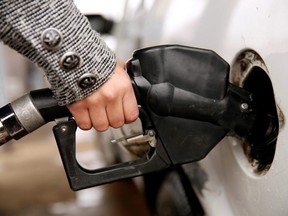
Given these are serious times requiring serious solutions to serious issues, Prime Minister Justin Trudeau and the Liberals should stop claiming their carbon tax makes 80% of the people who pay it richer.
Yves Giroux, Parliament’s independent, non-partisan budget officer, has reported that factoring in the negative impact of the carbon tax on the economy, 60% of the people paying Trudeau’s carbon tax directly — those living in Ontario, Alberta, Saskatchewan and Manitoba — are poorer.
From our newsroom to your inbox at noon, the latest headlines, stories, opinion and photos from the Toronto Sun.
Thanks for signing up!
A welcome email is on its way. If you don't see it, please check your junk folder.
The next issue of Your Midday Sun will soon be in your inbox.
That means the carbon tax rebates they receive do not cover the increased cost of paying the carbon tax.
The PBO says the average household is already paying hundreds of dollars more annually than it gets in rebates, costs which will increase as carbon taxes rise every year.
Beyond that, Trudeau’s claim doesn’t pass the smell test. A tax that makes most people richer? Seriously?
RECOMMENDED VIDEO
The reality is this. In order, it says, to address climate change, the Trudeau government imposed a national minimum or “backstop” price on industrial greenhouse gas emissions, starting in 2019.
This impacts all Canadians — not just those living in the four provinces that pay carbon taxes directly.
Others have federally-approved carbon pricing mechanisms.
Trudeau’s floor price on emissions started at $20 per tonne in 2019, is now $50 per tonne, rising by 20% to $60 per tonne on April 1, on its way to $170 per tonne in 2030.
When governments put a charge on something that has never been charged for before, someone has to pay it.
In Canada, we all pay, either as taxpayers in higher taxes or as consumers in higher retail prices, because almost all goods and services are created using fossil fuel energy.
Contrary to Trudeau’s claim, it’s not vaguely defined “polluters” paying these increased costs.
By the government’s logic, we are the polluters because we create the demand for goods and services that generate emissions.
But carbon pricing, unlike, for example, taxes on alcohol and tobacco, increases the cost of necessities, such as heating your home or driving your car to work.
So yes, it’s time to consider serious solutions to serious issues, one of which would be to suspend carbon pricing in a time of high inflation which is reducing the buying power of Canadian families.


